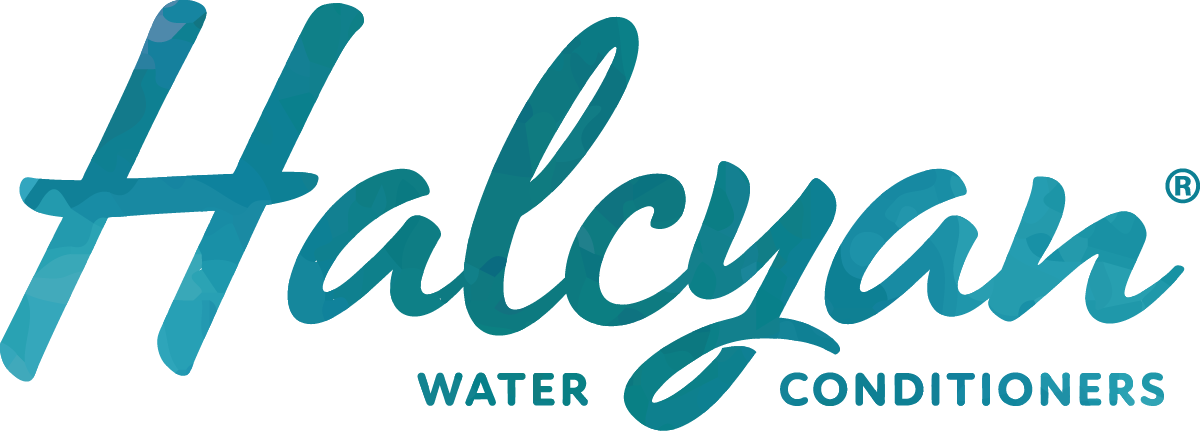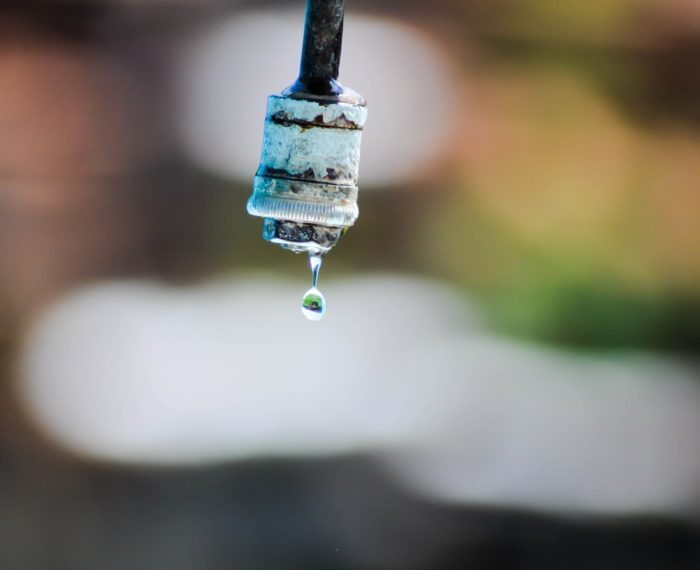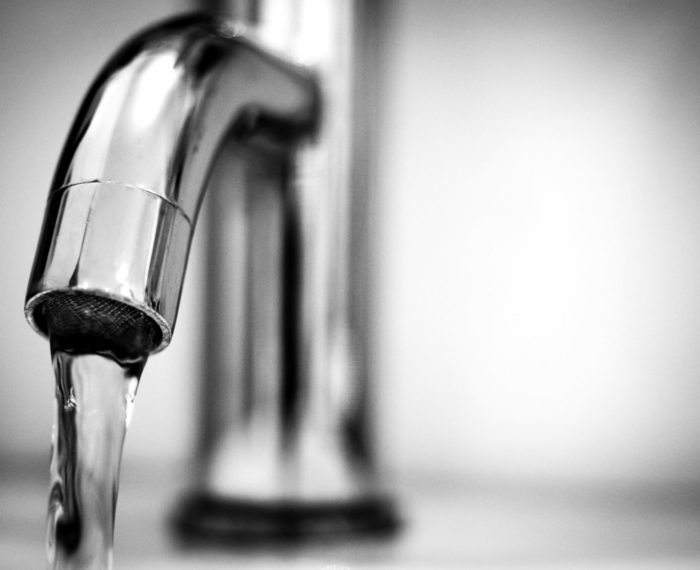It’s probably not a surprise to hear about hard water, with millions of UK households living with high mineral content. Areas such as the South East and South West are especially chalky and so levels of calcium and magnesium in the water naturally tend to be higher. Hard water isn’t generally thought of as harmful, but it can have both positive and negative impacts on your body, your home and your day to day life. It’s true that these effects are often overlooked or considered minor, but for those with particularly sensitive skin, hair or old water pipes, they can be a real issue.
In this blog, we wanted to take a more in-depth look at the effects of hard water on your health, skin and hair, plumbing and other household problems. Plus, we’ll explain why using a water conditioner rather than a water softener is the better and healthier option for your home.
1. Is Hard Water Bad for You?
Drinking hard water is not only safe, but also provides some important nutrients to the body. Calcium and magnesium are essential minerals that promote healthy bones, muscle function and nerve signalling, among other benefits. So if you’re not getting enough of them from your diet, hard water can help provide your recommended daily intake.
Studies have shown a link between drinking hard water and a reduced risk of cardiovascular issues, possibly related to magnesium content. There are also some early indications of reduced risk of certain types of cancer or dementia in hard water areas, but more research is needed.
In short: no, it isn’t bad for you, and may in fact be a little beneficial if drank in moderation.
2. It’s Not Always Kind to Your Digestive System
That said, not all hard water affects everyone the same. People with sensitive digestive systems or conditions that can be aggravated by high levels of certain minerals (such as kidney stones, irritable bowel syndrome, mineral imbalances etc.) may find that hard water can worsen symptoms. If someone is regularly getting more calcium and magnesium than the body can use, there may be a long-term impact on digestive health, such as constipation or bloating.
Fortunately, our bodies are very efficient at regulating these minerals and it is unlikely that anyone would be adversely affected unless they have an underlying health issue, plus any excess is usually excreted anyway. However, anyone with a health condition or on a restricted diet should be aware of their overall mineral intake, especially if they are also taking supplements or a mineral-heavy diet.
3. The Impact on Skin and Hair
The places where hard water often has the most noticeable impact are on your skin and hair. Itchy, dry skin, irritated scalp or dull, dry, lifeless hair might not only be the result of a hectic routine or the wrong products, hard water could be a key culprit.
Why? Simply because:
- The minerals in hard water react with soaps and detergents to create scum that blocks pores and leaves a film on the skin
- The reaction of soap and hard water can lead to dry skin, irritation and even flare-ups of existing conditions such as eczema or psoriasis
- Lack of lather means shampoo and conditioner have a harder time rinsing out, coating hair and leading to limp, lifeless locks
Hard water is particularly irritating to children and babies, and there’s some evidence that growing up with hard water may increase the risk of eczema.
4. Effects You Can’t See: Hidden Costs in the Home
Hard water also causes less obvious effects on your plumbing, appliances and utility bills. Limescale is the deposit that is left when calcium and magnesium in the water heat up and crystallise. This can lead to a number of problems including:
- Blocked or reduced pipe capacity and lower water pressure
- Damage to kettles, washing machines, dishwashers, boilers etc. that can lead to breakdowns or reduced lifespan
- Higher energy consumption to run appliances that have reduced efficiency due to limescale
- Stubborn white marks or cloudy films on sinks, taps, shower screens and glassware
In other words, the effects of hard water not only cause discomfort or frustration, but can also cost you hundreds of pounds in maintenance and higher bills over the years.
5. The Common “Solution” – Water Softeners
One of the most common “solutions” to hard water is a water softener. The typical type is a salt-based system that filters your water, removing the calcium and magnesium and replacing it with sodium. Softeners do help reduce limescale, increase soap lather and prevent many of the problems associated with hard water. However, it’s important to note that they also have some drawbacks:
- Removes healthy minerals from water
- Add sodium to water, which can be harmful for people who need to restrict sodium intake
- Require maintenance, salt top-ups, and power to function
- The softened water produced is not as suitable for drinking, or watering plants
- Consumes water and electricity, and discharges brine which is bad for the environment
So while softeners can fix scale and scum, they do so at a cost to health and the environment. And there’s a better option.
6. Why a Water Conditioner Is the Better Choice
That’s where Halcyan’s water conditioners come in. A water conditioner is a completely different type of system to a water softener. It doesn’t add or remove anything from the water, but it uses a unique process to change the structure of the minerals in hard water. This way, the minerals can no longer bind together or cling to surfaces, pipes or appliances to create scale.
A water conditioner is a much cleaner and more efficient way to address the problems caused by hard water. Here’s why it’s the healthier and more eco-friendly solution:
- Contains no salt or chemicals of any kind
- Preserves healthy minerals in your water, so you don’t lose out on the benefits of hard water
- Safe for drinking, safe for pets and watering plants
- Zero maintenance, no salt refills or electricity or filters required
- Prevents limescale buildup, so protects your home and your appliances
- Environmentally responsible, with zero waste discharge or consumables
And Halcyan’s units come with a 30-year warranty, uses no power, and are made to last a lifetime, so they’re better for your health, your wallet and the planet.
7. Tips for Managing Hard Water at Home
If you’re not ready for a whole-home solution (or even if you are! ), there are some simple steps to manage the impacts of hard water:
- Install a shower filter to reduce scale and protect your skin and hair
- Descaling your kettle and appliances regularly with vinegar or citric acid to prevent buildup
- Cleaning taps and showerheads to remove limescale and bacteria
- Choosing soaps and shampoos formulated to work better in hard water
- Installing a water conditioner like Halcyan’s to enjoy mineral-rich, scale-free water all around your home
Conclusion
Hard water is a natural and unavoidable part of life for many homes, but that doesn’t mean you have to accept the downsides. Hard water provides minerals that can be beneficial to health, but can also cause dry skin and hair, damage plumbing and appliances and waste energy. Softening water may seem like an obvious answer, but it comes with its own health, environmental and financial issues. The better choice is a water conditioner, which preserves the benefits of hard water but without the drawbacks. No salt, no chemicals, no compromises.
Enjoy the benefits of Halcyan’s Water Conditioner, and protect your home, your health and the planet at the same time.



